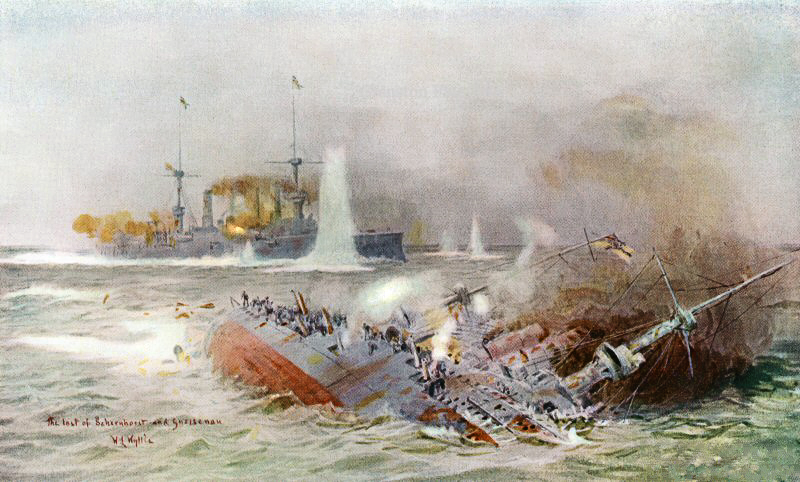
“The obscure conflict, which began on March 30, 1651, was a curious by-product of the English Civil War.”
WHAT’S THE longest declared war in history? A little-known conflict between Holland and Britain’s Isles of Scilly that lasted more than three centuries currently holds the record.
But what’s even more remarkable: The dispute between between the two factions produced zero casualties and not so much as a single battle. Stranger still, for centuries neither side realized that a formal state of hostilities even existed.
The obscure dust-up, which began on March 30, 1651, was actually an off-shoot of the English Civil War.
The Dutch, at the time allies of England, had chosen to support the stronger Parliamentarians in the decade-long conflict. The Royalists considered Holland’s decision a betrayal and promptly used the King’s fleet to punish their former friends by raiding Dutch shipping.

But by 1651, the war with Parliament was going poorly for the Royalists. In fact, the King’s forces had been all but chased from England. Among their last remaining strongholds was on the Isles of Scilly, a tiny group of islands about 45 kms off the western tip of Cornwall in the Celtic Sea. And “tiny” is by no means an exaggeration: the largest of the Scilly Isles is only four square miles. Hoping to recoup some of their losses at the hands of the raiders, the Netherlands dispatched a fleet of warships to bully the remaining Royalists on the islands into paying reparations for the damage done to Holland’s trade.

The Dutch commander, Admiral Maarten Harpertszoon Tromp, supposedly had orders to declare war on the territory if the Royalists failed to cough up the money. The king’s supporters refused and according to the story, Tromp declared war. But with so few Royalist forces remaining on the islands and very little in the way of spoils to be had, Tromp withdrew his fleet without firing a shot and sailed for home.
By June, the Royalists fleet had formally surrendered to Parliament and the English Civil War finally sputtered out. So did Holland’s interest in following up on its earlier war declaration. In fact, the Dutch soon forgot they ever issued it.
More than three centuries later in 1985, a historian on the Isles of Scilly named Roy Duncan stumbled across details of the conflict while poring over some old documents.
Duncan wrote to the Dutch Embassy in London informing them of his discovery. When officials in the Netherlands confirmed the fact that indeed no suspension of hostilities had ever been issued, Duncan invited the Dutch ambassador to Great Britain to visit the islands and formally negotiate an armistice.
On April 17, 1986, a peace treaty was signed. The ambassador reportedly joked after signing the document that the Scillians must have been living in fear for 335 years knowing that at any moment the Dutch might have attacked them.
Other historians have since questioned whether the Dutch commander in 1651 actually had the authority to declare war. And some have pointed out that technically it’s not possible for a country to declare hostilities on a specific region of another sovereign nation. Furthermore, any state of conflict that would have existed between Scilly and the Netherlands would have been terminated at the end of a subsequent fight between England and Holland between 1652 and 1654.











Hope the long time enemies had a huge armistice! I wonder if Wellington felt uneasy having enemy troops in his ranks at Waterloo, though! 😉
Ha… it doesn’t sound like Sir Arthur would have even known that the Dutch were his historic enemies. LOL.